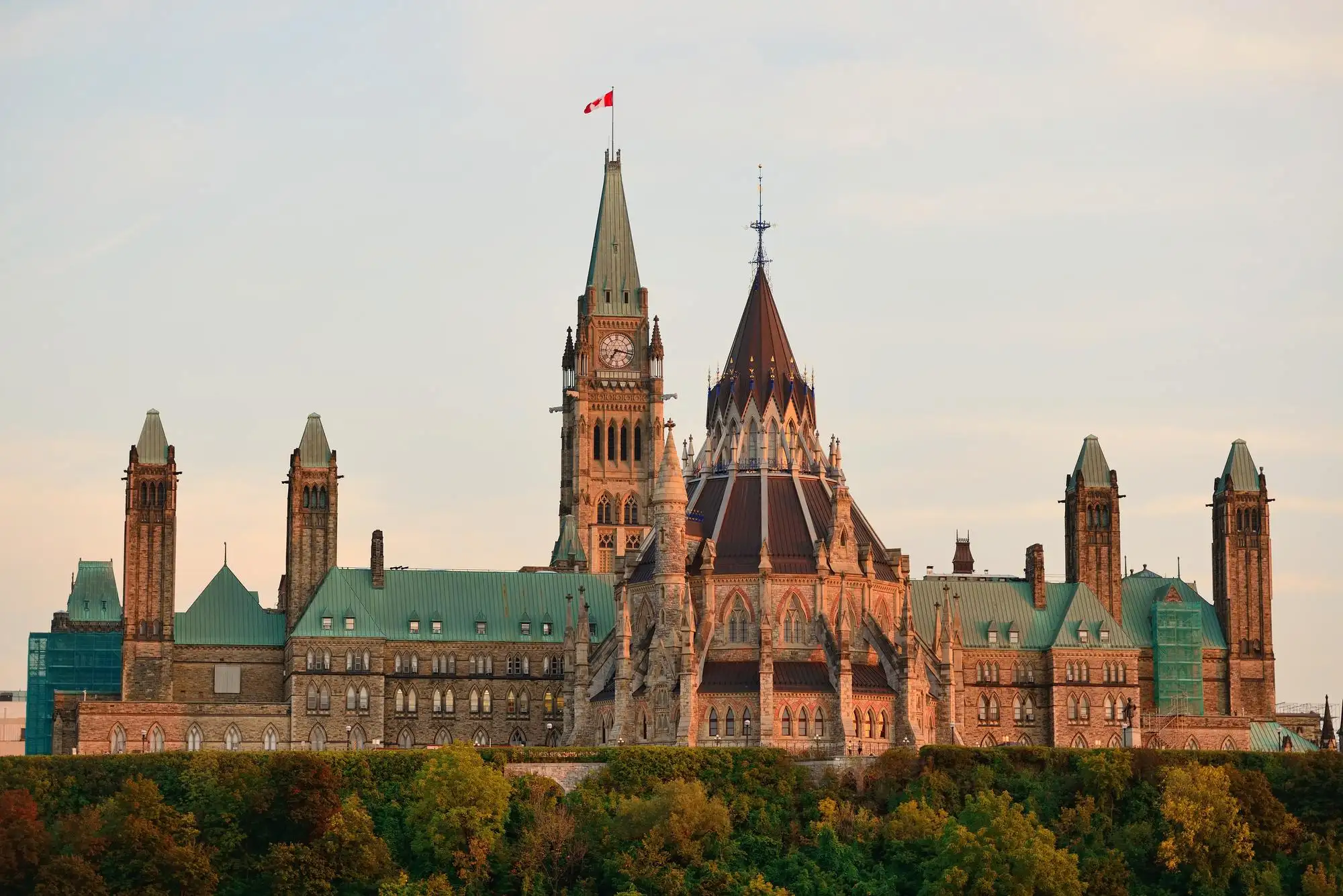Finance Minister, Chrystia Freeland, provided some welcoming news for small business owners when she tabled the 2021 Federal Budget yesterday. Here are some of the tax measures that small business owners need to know.
(We like to note that the current Liberal government is a minority government, and these measures may not receive royal assent.)
1. Immediate Expensing of Capital Assets
This is by far the best news delivered by Ms. Freeland for small business owners. This measure will allow businesses to make appropriate investments in their businesses to emerge from the pandemic. This measure is expected to cost the government a whopping $2.2 Billion. (The government has not released legislation for these rules yet, so our comments below are extracted from proposals in the Budget document).
What is it?
The government is allowing Canadian-Controlled Private Corporation (“CCPC“) – small businesses – to write off 100% of certain capital properties (referred to as “Eligible Properties“) acquired on or after April 19, 2021, and that becomes available for use before January 1, 2024.
You can write off a maximum of $1.5 million per taxation year.
If you were considering big capital expenditures, you might consider accelerating these investments to take advantage of these generous rules.
This is an important measure. It will somewhat level the playing field for Canadian private companies competing with businesses down south and ready to emerge from the pandemic.
What are the Eligible Properties?
Eligible property under this new measure would be a capital property that is subject to the CCA rules, other than property included in CCA classes 1 to 6, 14.1, 17, 47, 49 and 51, which are generally long-lived assets such as real estate, parking lots, pipelines.
Who does this benefit?
Small business owners who purchase equipment and other capital assets.
For example, these could include:
- Equipment used in business.
- Vehicles (note that luxury vehicles have a maximum $30,000 + HST limit)
- Dental equipment for dental equipment.
- Furniture and fixtures
- Leasehold improvements
- Computer equipment (laptops, phones, tablets)
- Patents, licences, digital assets, and intellectual property
- Aircraft
Note that you can already write off 100% manufacturing and processing machinery and equipment based on measures tabled on November 21, 2018. The availability of these other enhanced deductions under existing rules – such as the full expensing for manufacturing and processing machinery and equipment and clean energy equipment– would not reduce the maximum amount available under this new measure.
What if I have multiple companies? Can I multiply the write-off?
You will need to share the $1.5 million limit among associated members of a group of CCPCs.
Planning on Selling Your Business
If you are planning on selling your business assets, you may be forced to recapture these additional write-offs and required to pay tax at that time.
This is something to be mindful of.
Consider selling the shares of your business instead of the assets of your business. An added benefit of selling shares is that you could qualify for the lifetime capital gains exemption. Talk to your LRK Tax specialist for more details.
What Happens if I Buy Previously Used Property?
If you buy a property that has been used before you acquired it, you would still be eligible for immediate expensing only if you meet both of the following conditions:
- neither the taxpayer nor a non-arm’s length person previously owned the property; and
- the property has not been transferred to the taxpayer on a tax-deferred “rollover” basis.
Will the Ontario Adopt the Same Measures?
Ontario generally follows the federal taxable income calculation, so it appears that businesses in Ontario should benefit from these measures both for federal and provincial tax.
Case Study
Dr. John Doe Dentistry Professional Corporation acquires dental equipment falling under class 8 for $1,500,000 on April 19, 2021. It is subject to tax at 15% Federal Tax.

CCPCs with would be allowed to decide to which CCA class the immediate expensing would be attributed. So, John decides to designate the dental equipment for Immediate Expensing.
| Before | After | Difference | |
| Write-off for tax | $450,000 | 1,500,000 | 1,050,000 |
| Federal tax rate | 15% | 15% | 15% |
| Federal tax savings | $67,500 | $225,000 | $157,500 |
2. No Personal or Corporate Tax Rate Increases
The government has kept the corporate and personal tax rates the same.
3. Rate Reduction for Zero-Emission Technology Manufacturers
Budget 2021 proposes a temporary measure to reduce by half the federal corporate income tax rates for qualifying zero-emission technology manufacturers. For Canadian-Controlled Private Corporation’s, the corporate tax rate will be as follows
| Income | Regular Business Income | Eligible zero-emission technology manufacturing and processing income |
| Up to $500,000 (small business rate) |
12.2% (9% Federal + 3.2% Ontario) |
7.7% (4.5% Federal + 3.2% Ontario) |
| >$500,000 (general rate) |
26.5% (15% Federal + 11.5% Ontario) |
19% (7.5% Federal + 11.5% Ontario) |
For taxpayers with income taxed at both the general and the small business corporate tax rates, they would be able to choose to have their eligible income taxed at either the reduced rate of 4.5% for small businesses or the general reduced rate of 7.5%. The amount of income taxed at the 4.5% rate plus the amount of income taxed at the small business rate of 9% would not be allowed to exceed the business limit ($500,000).
This measure would apply to income from zero-emission technology manufacturing or processing activities like manufacturing of zero-emission vehicles, manufacturing of solar energy conversion equipment, and more. If you like to know if your activity qualifies, please contact us.
The reduced rates would be gradually phased out starting in taxation years that begin in 2029 and fully phased out for taxation years that begin after 2031
Because the corporate tax rates are lower, owners of these businesses will end up with more after-tax cash after paying themselves dividends.
4. Extending CEWS and CERS
Read more in our blog post here.
Budget 2021 proposes to extend the Canada Emergency Wage Subsidy (CEWS), the Canada Emergency Rent Subsidy (CERS) and the Lockdown Support until September 2021. The subsidy rates would gradually decline over the July-to-September period. Budget 2021 also proposes to provide the government with authority to extend these programs until November 20, 2021, should the economic and public health situation warrant it.
These extensions will cost the government upwards of $12 Billion.
5. The New Canada Recovery Hiring Program
Read more in our blog post here.
To help businesses emerge out of the pandemic, Budget 2021 proposes to introduce the new Canada Recovery Hiring Program (CRHP) to provide eligible employers with a subsidy of up to 50% on the incremental remuneration paid to eligible employees between June 6, 2021 and November 20, 2021.
This program is expected to cost the government $600 Million.
6. More Power to CRA Auditors?
In a recent court case, the courts ruled that CRA cannot require taxpayers to give oral answers to questions. In response to this court case, the Budget proposes to clarify that CRA officials have the authority to require persons to answer all proper questions. They also have the authority to require taxpayers to provide all reasonable assistance, for any purpose related to the administration or enforcement of the law. They would also provide that CRA officials the authority to require persons to respond to questions orally or in writing, including in any form specified by the relevant CRA official.
CRA officials the authority to….
(c) require the owner or manager of a property or business of a taxpayer — and any particular person on the premises or place where the business is carried on, the property is kept, anything is done in connection with the business or any books or records of the taxpayer are or should be kept — to give the authorized person all reasonable assistance and to answer all proper questions and, for those purposes, the authorized person may require
(i) the owner or manager to attend at the premises or place with the authorized person, and
(ii) the owner, manager or the particular person to answer those questions orally or in writing, in any form specified by the authorized person.
The CRA claims that these powers always existed. However, not they’re written in stone (assuming these rules receive royal assent).
7. Other Notable Measures
Tax on Luxury Vehicles, Boats and Aircrafts
Budget 2021 proposes to introduce a tax on the retail sale of new luxury cars and personal aircraft priced over $100,000, and boats priced over $250,000.
For vehicles and aircraft over $100,000, the amount of the tax is the lesser of 10% of the full value of the vehicle or the aircraft, or 20%of the value above $100,000.
For boats priced over $250,000, the amount of the tax is the lesser of 10% of the full value of the boat or 20% of the value above $250,000.
Sales Tax on Digital Goods Purchased from Non-Resident Vendors
Starting on July 1, 2021, the following non-resident vendors must register for and collect Canadian GST/HST. The price you pay upfront for certain digital goods and services may increase. Read more about it here.
Tax on Unproductive Use of Canadian Housing by Foreign Non-resident Owners
Budget 2021 proposes introducing a 1% tax on the value of non-resident, non-Canadian owned residential real estate considered vacant or underused. This tax applies annually beginning in 2022. In the coming months, the government will release more details.
Reducing Credit Card Transaction Fees
Businesses had to adopt online payments. This resulted in more fees. The government proposes to:
- Lower the average overall cost of interchange fees for merchants
- Ensure that small businesses benefit from pricing that is similar to large businesses
- Protect existing rewards points of consumers
The government will outline the next steps as part of the 2021 Fall Economic Statement.
New Apprenticeship Service – Creating New Opportunities for Skilled Tradespeople
Budget 2021 proposes to provide $470 million over three years, beginning in 2021-22, to Employment and Social Development Canada to establish a new Apprenticeship Service. Employers would be eligible for a reimbursement of up to $5,000 for all first-year apprenticeship opportunities and doubled to $10,000 for employers who hire underrepresented apprentices such as women, racialized Canadians and persons with disabilities.


